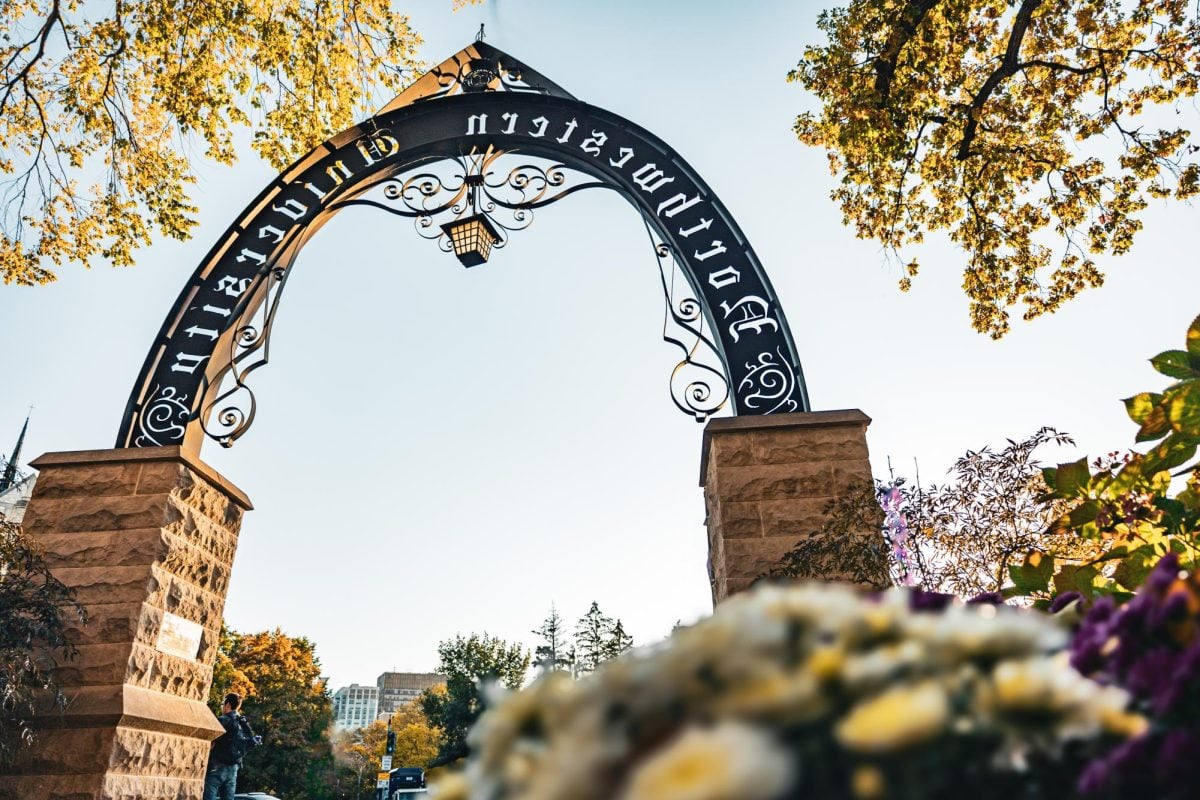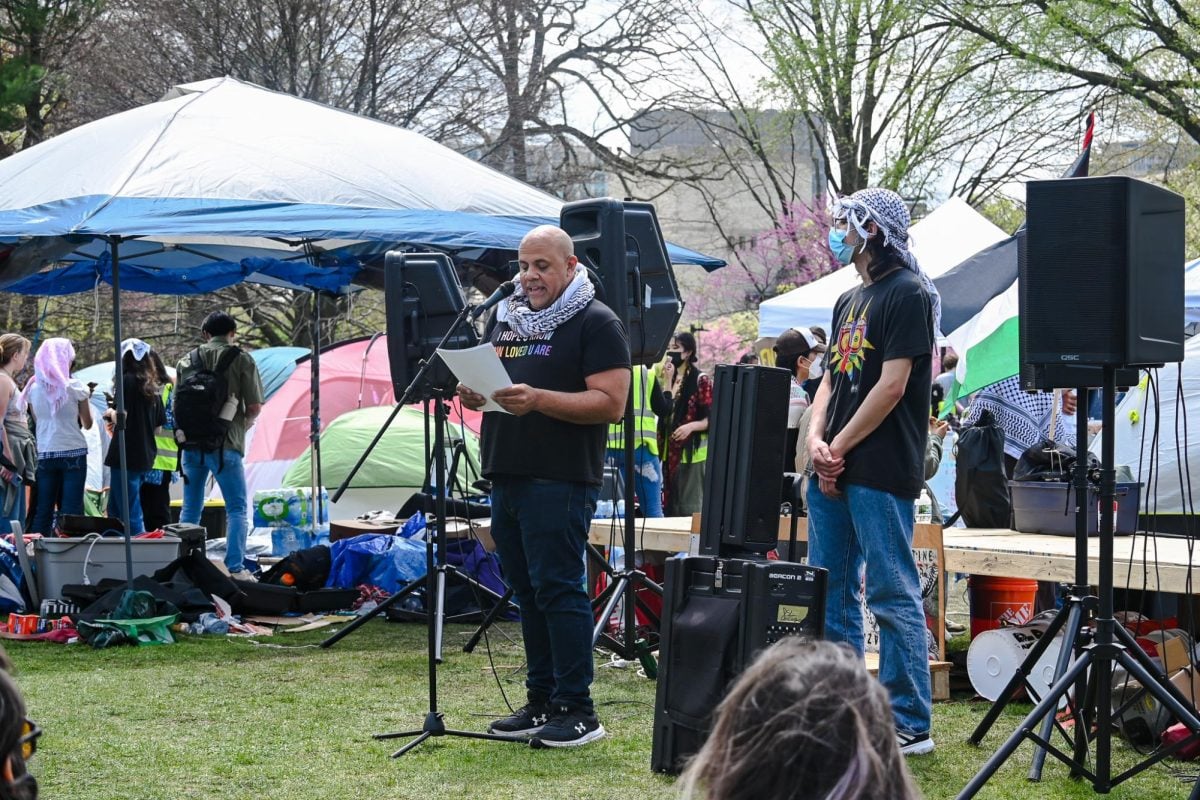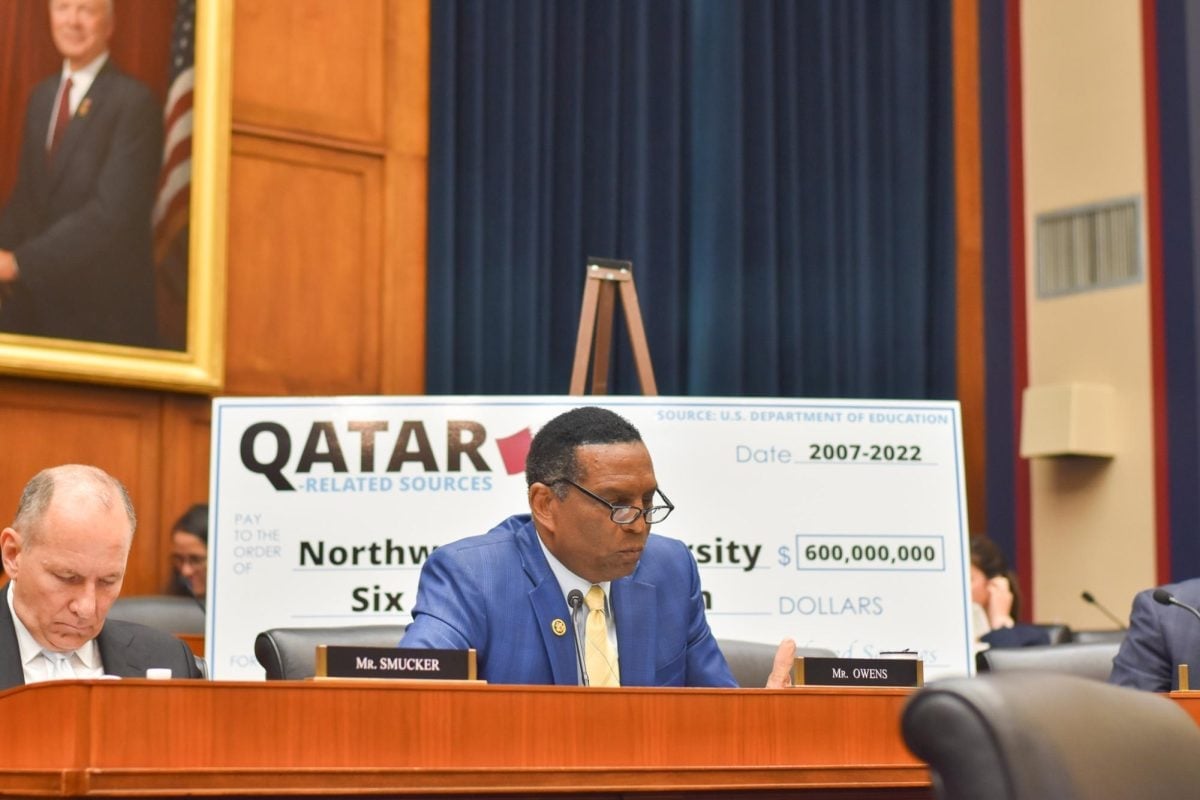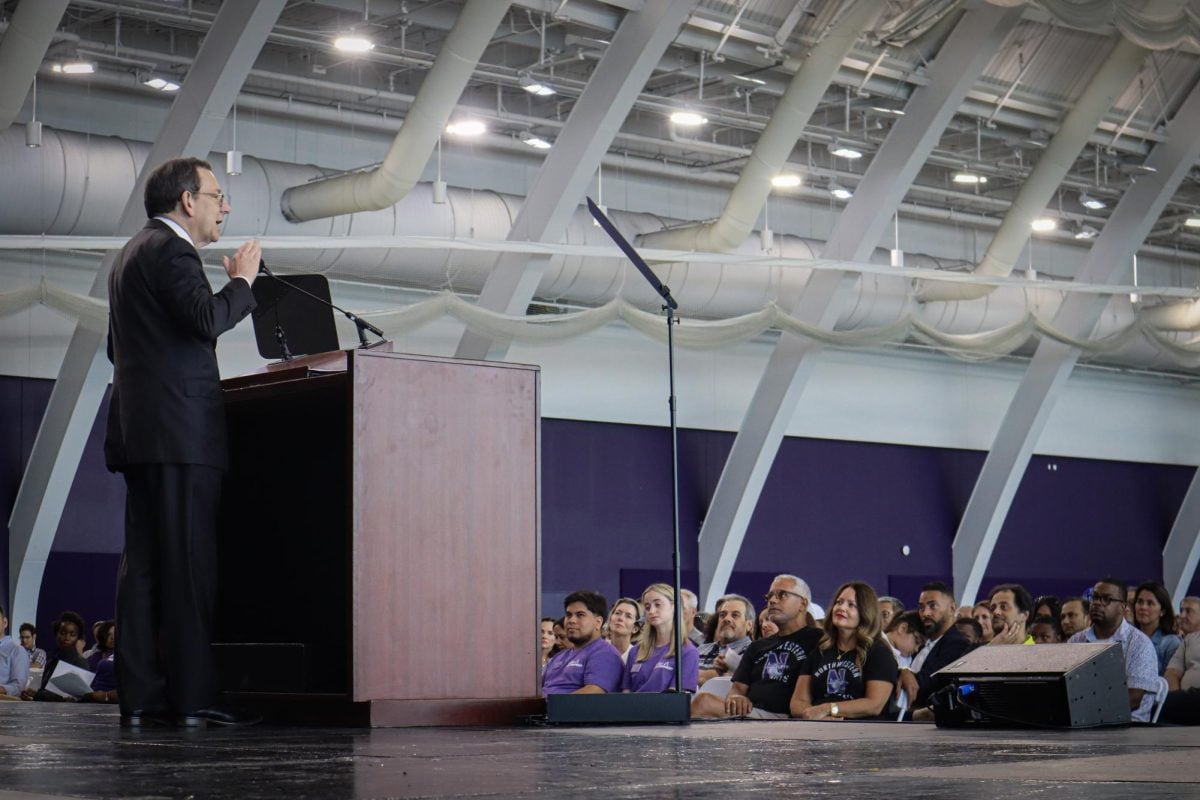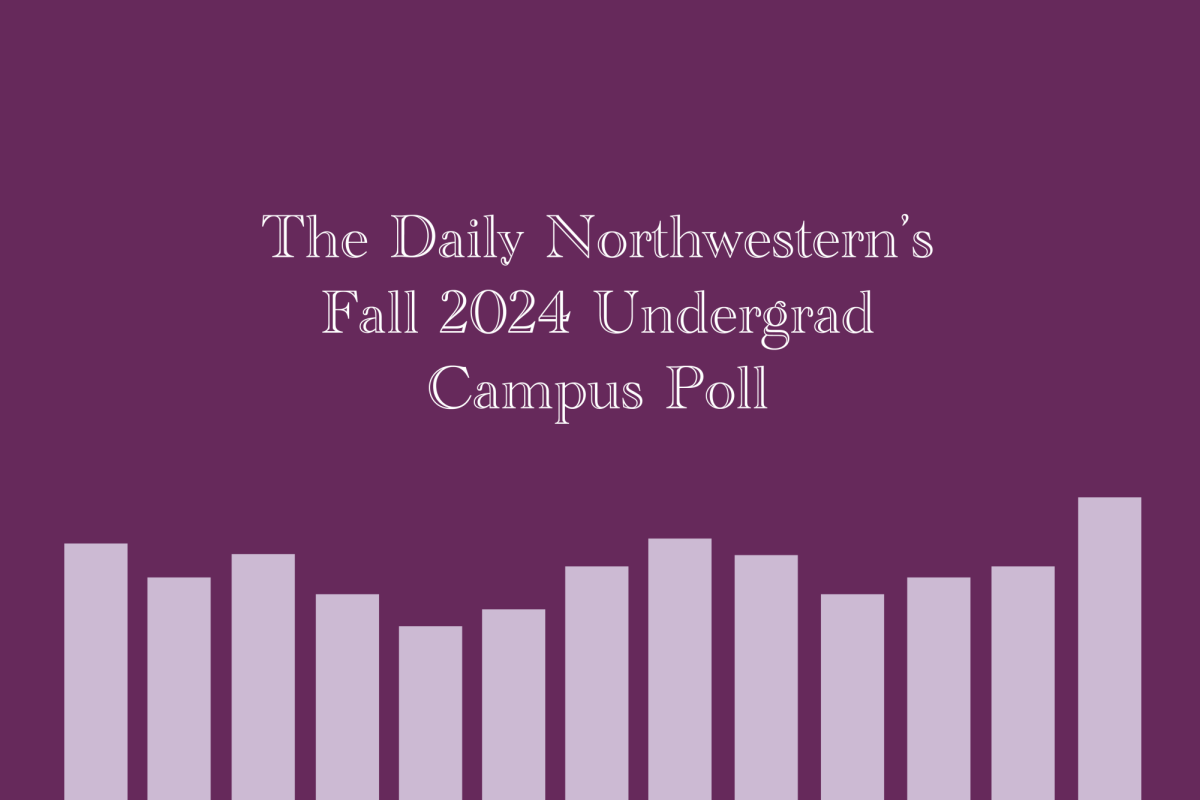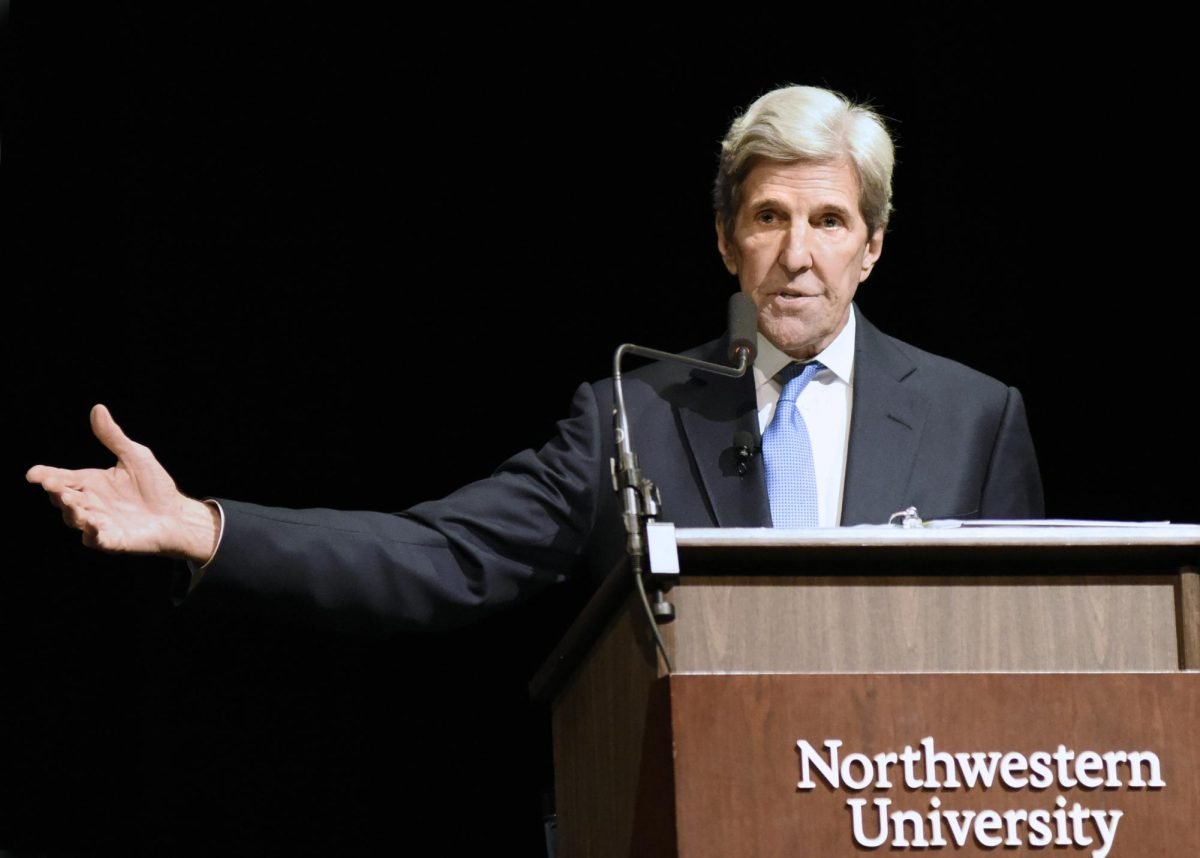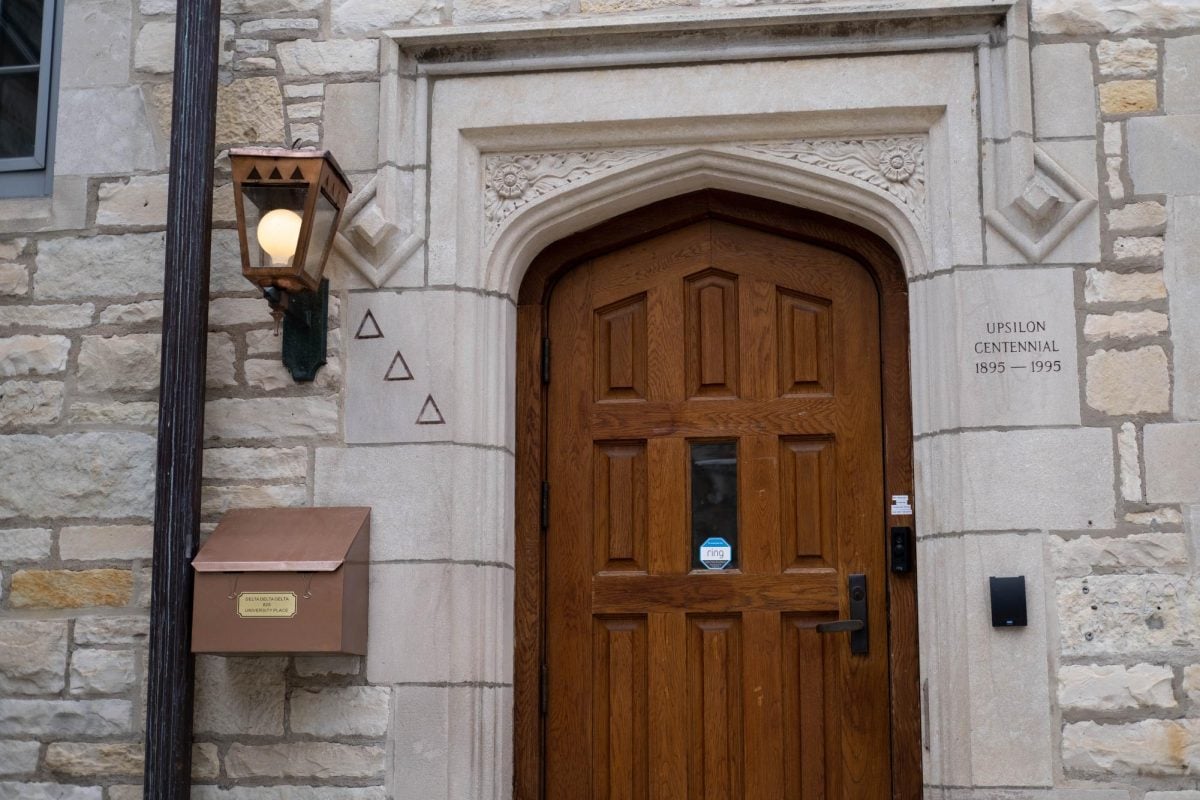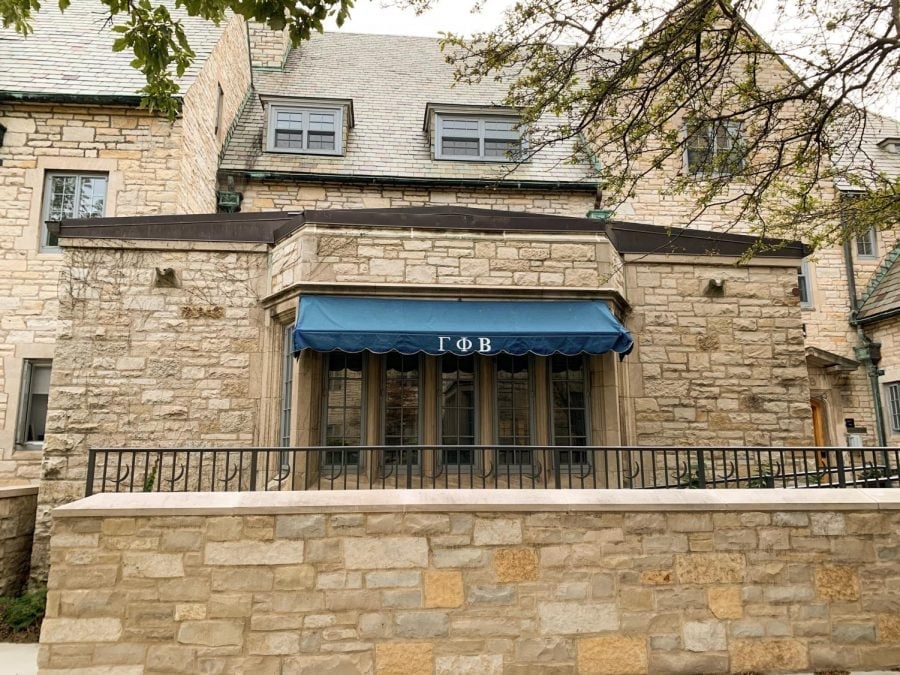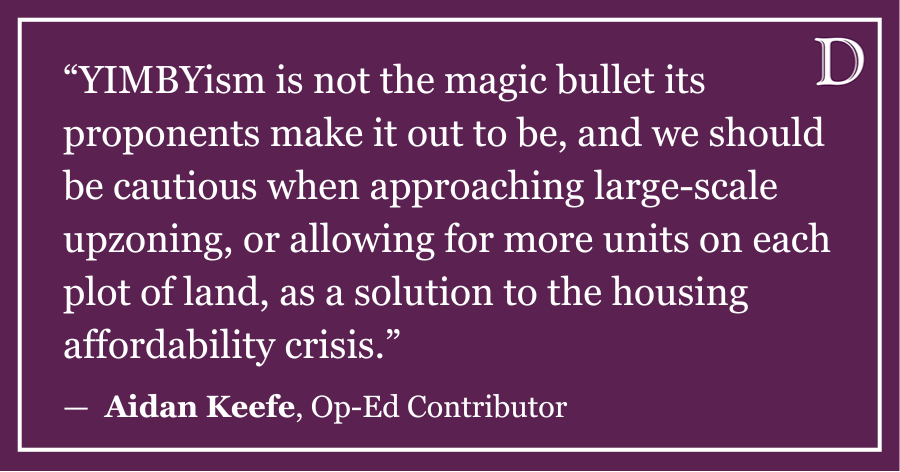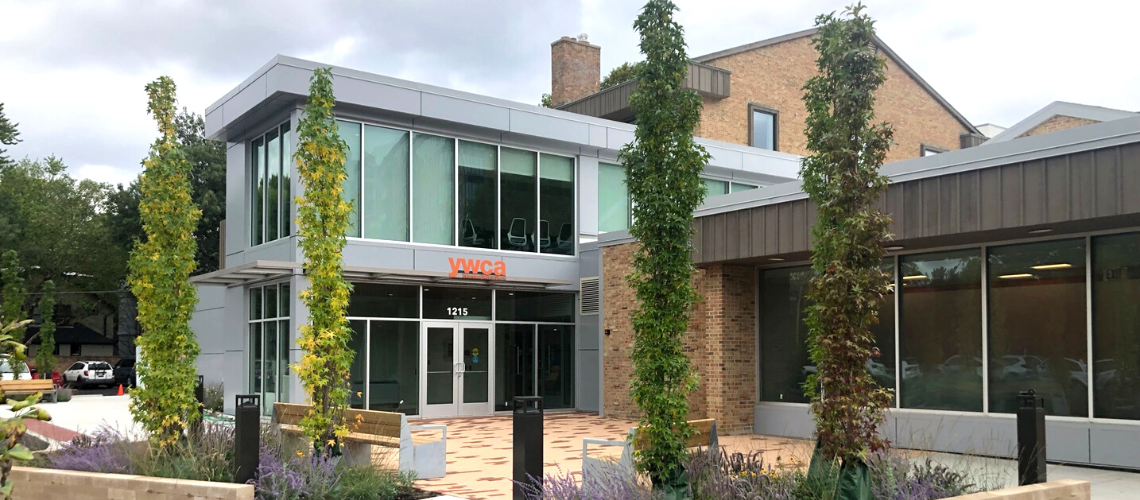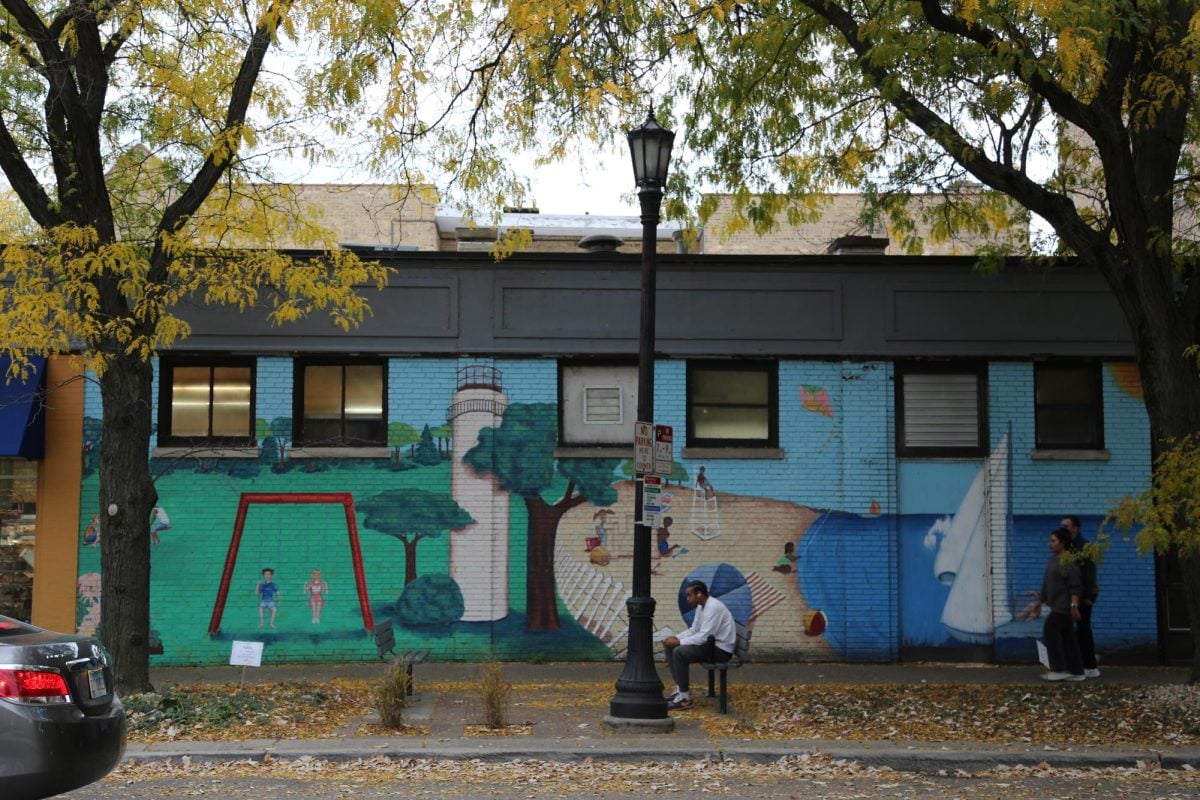In the week since he announced a new committee on preventing antisemitism and hate, Northwestern President Michael Schill has faced strong responses from students and faculty alike.
The committee will aim to guide Northwestern’s response to discourse on campus about the Israel-Hamas war and prevent “the type of violence and threatening behaviors we have seen at peer institutions,” Schill wrote in a message to the community last week.
Schill added that the University “will not stand for antisemitism” or other forms of discrimination based on race, nationality, religion or other identities.
While some students and faculty see the committee as a much-needed step in fighting antisemitism on campus, others worry that Schill neglected other forms of hate that impact students –– particularly Islamophobia.
The announcement came after weeks of student-led walkouts, protests and demonstrations relating to the war. About 1,200 Israelis were killed in Hamas’ Oct. 7 attack on Israel, and more than 11,000 Palestinians have been killed in the ongoing war as the Israeli military has responded with a continuous counterattack and siege on the Gaza Strip, according to Israeli and Palestinian authorities.
History Prof. David Shyovitz said while he believes antisemitism is a pressing issue on college campuses, he still thinks those who disagree with that assessment should see value in its work to assess solutions to antisemitism at NU.
“At a minimum, I think everybody on campus should be in agreement that the way that we talk about antisemitism on campus needs to be explored and needs some sort of thoughtful conversation and maybe policies,” he said.
Medill junior Sama Ben Amer, a former Daily staffer, said she was “deeply disappointed” when she saw Schill’s Nov. 14 message. Ben Amer said she doesn’t understand why Schill specifically named antisemitism and not Islamophobia in the committee’s name, even though Islamophobia has also been pertinent at campuses nationwide in discourse about the war.
“There’s no reason to separate (the two), especially if it’s stemming from a similar source or cause,” Ben Amer said. “Whatever the hate that manifests in antisemitism and Islamophobia, I believe is the same source.”
Ben Amer added she sees Schill’s message as an attempt to vilify student groups like NU’s chapter of Students for Justice in Palestine, laying the groundwork to potentially disband those organizations as other schools like Columbia University have done in recent weeks.
In a Thursday letter to Schill, nine NU librarians wrote that “Northwestern is now laying the groundwork to follow a terrifying trend of targeting students who stand up for Palestinian rights that has begun on other college campuses such as Columbia University, Harvard University, and Brandeis University.”
University spokesperson Hilary Hurd Anyaso told The Daily the committee “will focus on all forms of hate, including Islamophobia, and will include appropriate representation.” She added that the committee, still in formation, “will seek broad representation including member(s) of Arab, Muslim, and/or Palestinian communities.”
In the Nov. 14 message — his fifth to the community since the Oct. 7 attack — Schill reiterated his belief that “A strong commitment to fighting antisemitism and other forms of hate, such as those targeting students, faculty or staff of Muslim or Arab heritage, is consistent with our value of protecting free expression.”
Weinberg junior Sari Eisen currently serves as president of the student executive board at NU Hillel, a center for Jewish life on campus. Eisen said she found Schill’s explicit mention of antisemitism “comforting.”
“The amount of antisemitism on college campuses right now is too high,” she said. “So I think anything we can do to keep Jewish voices strong and represented for Jewish students everywhere is the most important thing.”
McCormick junior Youssef Abdelhalim said he did not expect a message from Schill about hate on campus but added that he was dismayed at Schill’s decision not to name Islamophobia in the message.
“I think they should either stay out of it and let people talk freely, or, if they want to do something, then they better be accurate and equal,” he said. “(Schill) did mention one sentence in there about hurting people of Muslim or Arab heritage, but three or four times he mentioned antisemitism, and I get curious why that is the case.”
Abdelhalim added that, growing up in the Middle East, he is used to having conversations about the Israeli-Palestinian conflict, but that many students on campus are not.
McCormick senior Youssef Ibrahim also said he saw the message as a sign that Schill does not prioritize Muslim students, noting Schill’s decision to attend an October vigil organized by Jewish students to mourn the loss of life in the war but not to attend one organized by SJP the same week.
Ibrahim said he was glad to see Schill stand with the Jewish community on campus but wished he had done the same for Muslim students.
“As the leader, you have to show the same empathy that he showed to Jewish people,” Ibrahim said. “There is no difference between a Jew being killed or a Muslim or a Christian. They are all human lives.”
Schill’s message also called on the NU community to reject statements that significant parts of the community “interpret as promoting murder and genocide.” He specifically cited “From the River to the Sea” — a phrase long used by pro-Palestine activists as a call for liberation for Palestinians across the region but seen by some Jews as a demand for the destruction of Israel, according to NPR.
A group of 66 student organizations signed a Letter to the Editor in The Daily last week condemning what they called Schill’s “attempt to mischaracterize the mission of activists on campus” by calling out the phrase.
Economics Prof. Joel Mokyr said he hopes Schill includes a variety of voices on the committee, including students from SJP. While he said he thinks most Israelis see “From the River to the Sea” as “a call for the physical obliteration of the Jewish population of Palestine,” Mokyr believes the speech should be protected, he said.
“‘From the River to the Sea’ strikes me as within the boundaries of free speech,” Mokyr said. “And, much like denying the Holocaust, they’re both utterly appalling to me, but there you have it.”
One hundred and sixty three NU faculty and staff signed a Letter to the Editor in The Daily last week saying Schill’s message was unbalanced and problematic. The faculty singled out Schill’s interpretation of the phrase, noting their concern for academic freedom and the right to dissent on campus.
Weinberg senior Ethan Less said he agrees with the signees’ emphasis on freedom of expression but has found faculty members uncommitted to creating safe spaces for dialogue around Israel in classrooms.
“I want to see them demonstrating that they’re committed to Jewish students being able to feel safe in their class to express pro-Israel sentiment, and I don’t really see that so much on campus,” Less said. “But then again, I know it’s really hard for Palestinian students on campus right now because of the threats as well, so I don’t want to minimize that either. It goes both ways.”
Schill’s announcement that Kellogg Prof. Efraim Benmelechwill lead the committee — alongside SESP Dean Bryan Brayboy — has also attracted some criticism.
Benmelech served six years in the Israeli Defense Forces in the 1990s, eventually serving as a commander. The minimum required length of military service for Israeli men is two years and eight months.
Political science Prof. Elizabeth Shakman Hurd said she worries Benmelech’s former service in the IDF could bias the committee toward certain kinds of hate.
“The IDF is associated with the state of Israel, and so that person presumably is going to be attuned to or have an ear for anti-Israel sentiment,” said Hurd, who signed the Thursday Letter to the Editor by faculty and staff. “I’m afraid — as a scholar of religion and politics — that having your antenna up for anti-Israel sentiment … sets up that kind of inquisitorial mentality and fear.”
Anyaso told The Daily Benmelech was selected “for his outstanding academic record, high integrity and nuanced perspectives on antisemitism and hate speech,” noting that Benmelech is a U.S. citizen and was required to serve in the IDF because he was born in Israel.
Mokyr said Benmelech is a close friend and colleague of his and called him an “honorable, decent, fair-minded guy” who he trusts to lead the committee neutrally.
Anyaso told The Daily that Benmelech did not wish to be interviewed for this article.
Weinberg junior Lily Cohen said while she sees the president’s decision to create the committee as NU “finally taking antisemitism seriously,” she emphasized there is more work to be done.
“The creation of it is not enough,” Cohen said. “Now, the president and his advisory committee have the responsibility to follow through with making Northwestern more welcoming and comfortable for Jewish students.”
Email: [email protected]
Twitter: @jacob_wendler
Related Stories:
— University President Michael Schill announces new committee on antisemitism and hate
— Students honor Israeli hostages with pop-up installation on Deering Meadow
